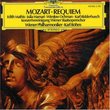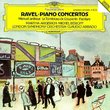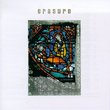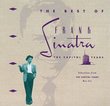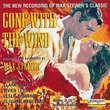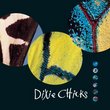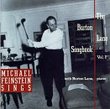| All Artists: Modest Mussorgsky, Igor Stravinsky, Herbert von Karajan, Berlin Philharmonic Orchestra, Maurice Ravel Title: Stravinsky: Le Sacre du Printemps; Mussorgsky: Bilder einer Ausstellung Members Wishing: 0 Total Copies: 1 Label: Deutsche Grammophon Release Date: 10/12/1990 Genre: Classical Styles: Ballets & Dances, Ballets, Historical Periods, Modern, 20th, & 21st Century Number of Discs: 1 SwapaCD Credits: 1 UPC: 028942916227 |
Search - Modest Mussorgsky, Igor Stravinsky, Herbert von Karajan :: Stravinsky: Le Sacre du Printemps; Mussorgsky: Bilder einer Ausstellung
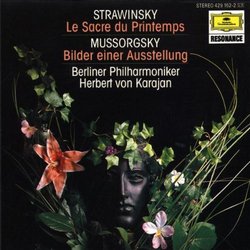 | Modest Mussorgsky, Igor Stravinsky, Herbert von Karajan Stravinsky: Le Sacre du Printemps; Mussorgsky: Bilder einer Ausstellung Genre: Classical
![header=[] body=[This CD is available to be requested as disc only.]](/images/attributes/disc.png?v=15401716) ![header=[] body=[This CD is unavailable to be requested with the disc and back insert at this time.]](/images/attributes/greyed_disc_back.png?v=15401716) ![header=[] body=[This CD is available to be requested with the disc and front insert.]](/images/attributes/disc_front.png?v=15401716) ![header=[] body=[This CD is unavailable to be requested with the disc, front and back inserts at this time.]](/images/attributes/greyed_disc_front_back.png?v=15401716) |
Larger Image |
CD DetailsSimilar CDsSimilarly Requested CDs
|
CD Reviews"A pet savage rather than a real one," said Stravinsky Alan | New York, NY | 07/21/2008 (4 out of 5 stars) "Karajan made two recordings Le Sacre du Printemps. This is the first, recorded in the 1960s. It's is a famous recording because Stravinsky wrote about it rather critically though not as negatively as legend has it. Here's some of what he wrote: "The recording is generally good, the performance generally odd, though polished in its own way; in fact, too polished, a pet savage rather than a real one. The sostenuto style is a principal fault; the lengths of notes are virtually the same here as they would be in Wagner or Brahms, which dampens the energy of the music and leaves what rhythmic enunciation there is sounding laboured. But I should have begun by saying that the music is alien to the culture of its performers. ... I doubt whether The Rite can be satisfactorily performed in terms of Herr von Karajan's traditions. I do not mean to imply that he is out of his depths, however, but rather that he is in my shallows -- or call them simple concretions and reifications. There are simply no regions for soul-searching in The Rite of Spring." As a Karajan fan, though, I have to say that this recording is worth listening to on its own terms, which admittedly really aren't Stravinsky's. Stravinsky was right, it is very smoothed out. If Richard Strauss had ever tried to write something like this, this is what he would have wanted it to sound like. In its arguably wrong-headed way, it's beautifully done. So this shouldn't be your first or only Sacre, but it does have its fascination, especially at the low price. A good choice for a first Sacre at a low price (or any price) is the Ozawa recording with the Chicago Symphony, which I find preferable to the first Boulez/Cleveland performance, also available at a low price. Bernstein's first recording (the one with the New York Philharmonic) was once available at a medium price but seems not to be available at the moment. (By the way, Karajan made a second commercial recording of Sacre, which I find far more successful if still a bit smoothed-out, but some people really hate that recording. It can be found inexpensively in the Stravinsky Panorama two-CD set from Deutsche Grammophon, as well as on a single CD paired with Karajan's generally acclaimed Prokofiev Fifth.) As for the Ravel orchestration of Pictures at an Exhibition here, this is a lovely performance in the Karajan tradition. Of course, some love that tradition and some hate it. At some of the climaxes, the sound is a bit harsh and glaring. I think the CD that pairs this recording with Karajan's recordings of Ravel's Bolero and Debussy's La Mer has a different remastering, but I haven't heard it. Other well-regarded modestly priced recordings of Pictures include those by Reiner and Ormandy, but I must admit that this is not a favorite work of mine and I haven't heard those recordings. I got this primarily for the Sacre, just to hear what Stravinsky was talking about and because I like Karajan. At this super-low price, it's worth it." A remarkable collection of two amazing works Damien Bradley | Santa Cruz, CA USA | 08/28/2000 (5 out of 5 stars) "I first picked up this disk a couple years ago after hearing a fragment of the Rite of Spring in a Music History class in eleventh grade. I was, of course less knowledgable about the pieces then. I listened to and quickly started liking the first half of Rite of Spring, then eventually the second half. This recording gives such a tremendous experience to the listener that it is almost as if it was coming directly out of Stravinsky's mind into the listener's. The rhythms are amazing, the dissonances are perfect. "Les Augures printaniers" makes you want to break into a ritual dance yourself.It wasn't for a while until I gave Pictures a full listen. But I gradually became familiar with it, and am now also familiar with the piano version (and can play some of it as well). Again, the amazing harmonies and storytelling of Mussorgsky's suite (based upon paintings by the Russian artist Viktor Hartman) combined with Ravel's genius orchestrating come out in full raw force to give the ears an amazing treat.The entire disc is kicked off with a beautifully resonant "Promenade"; the trumpet is played majestically and triumphantly. "The Hut on Fowls Legs (Baba-Yaga)" is filled with so much power it will incite the casual listener to their feet.I would tentatively call this disc the authoratative recording of both of these masterworks."
|

 Track Listings (29) - Disc #1
Track Listings (29) - Disc #1